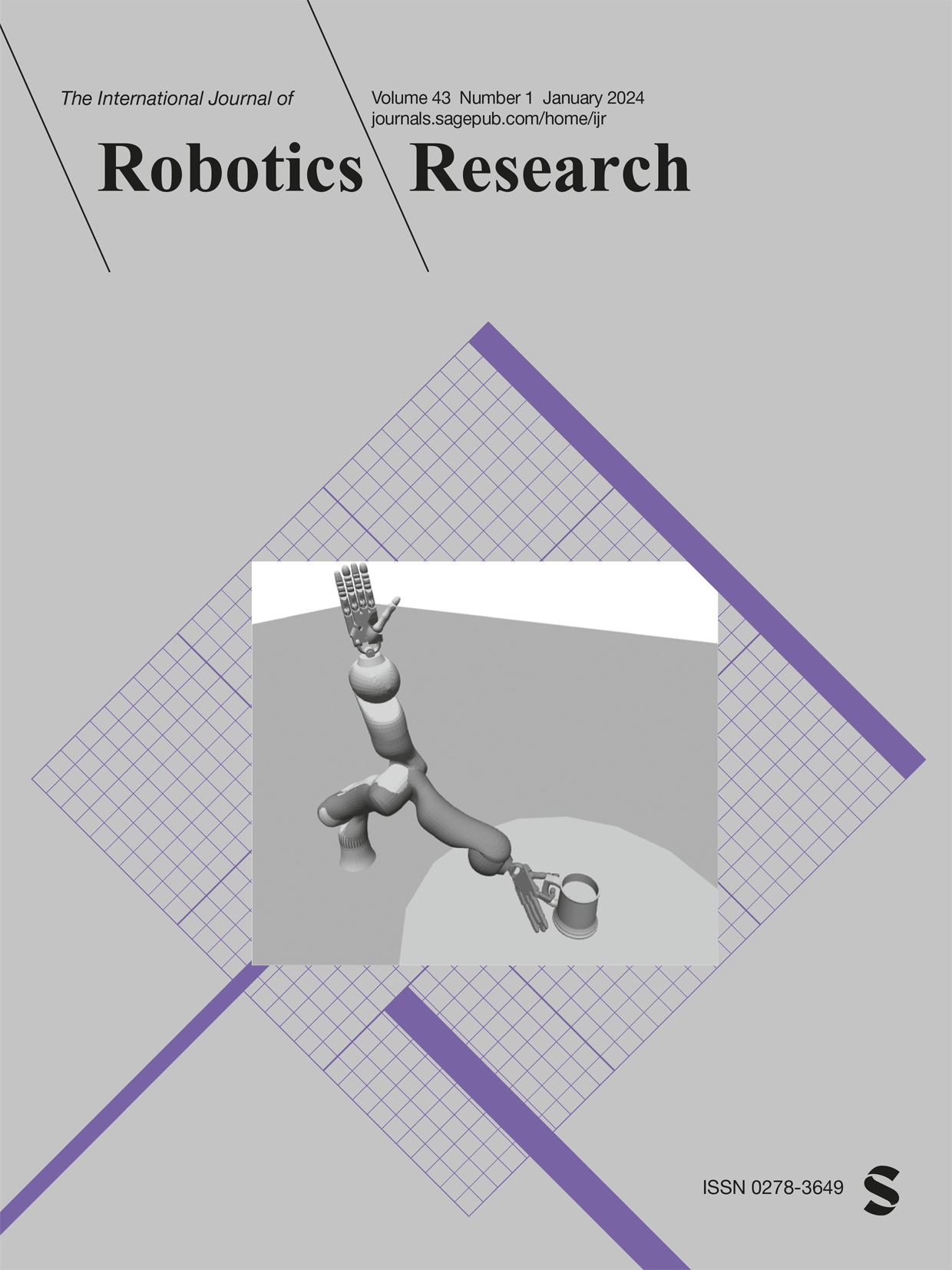Modelify: An approach to incrementally build 3D object models for map completion
IF 5
1区 计算机科学
Q1 ROBOTICS
引用次数: 0
Abstract
The capabilities of discovering new knowledge and updating the previously acquired one are crucial for deploying autonomous robots in unknown and changing environments. Spatial and objectness concepts are at the basis of several robotic functionalities and are part of the intuitive understanding of the physical world for us humans. In this paper, we propose a method, which we call Modelify, to incrementally map the environment at the level of objects in a consistent manner. We follow an approach where no prior knowledge of the environment is required. The only assumption we make is that objects in the environment are separated by concave boundaries. The approach works on an RGB-D camera stream, where object-like segments are extracted and stored in an incremental database. Segment description and matching are performed by exploiting 2D and 3D information, allowing to build a graph of all segments. Finally, a matching score guides a Markov clustering algorithm to merge segments, thus completing object representations. Our approach allows creating single (merged) instances of repeating objects, objects that were observed from different viewpoints, and objects that were observed in previous mapping sessions. Thanks to our matching and merging strategies this also works with only partially overlapping segments. We perform evaluations on indoor and outdoor datasets recorded with different RGB-D sensors and show the benefit of using a clustering method to form merge candidates and keypoints detected in both 2D and 3D. Our new method shows better results than previous approaches while being significantly faster. A newly recorded dataset and the source code are released with this publication.Modelify:一种增量构建用于地图完成的3D对象模型的方法
发现新知识和更新先前获得的知识的能力对于在未知和不断变化的环境中部署自主机器人至关重要。空间和物体概念是机器人几个功能的基础,也是我们人类对物理世界直观理解的一部分。在本文中,我们提出了一种方法,我们称之为Modelify,以一致的方式在对象级别上增量映射环境。我们采用的方法不需要事先了解环境。我们唯一的假设是,环境中的对象被凹面边界分隔开。该方法适用于RGB-D相机流,其中提取类对象片段并将其存储在增量数据库中。分段描述和匹配是通过利用2D和3D信息来执行的,从而可以构建所有分段的图形。最后,匹配分数引导马尔可夫聚类算法合并片段,从而完成对象表示。我们的方法允许创建重复对象、从不同视点观察到的对象以及在以前的映射会话中观察到的物体的单个(合并)实例。由于我们的匹配和合并策略,这也适用于仅部分重叠的细分市场。我们对用不同RGB-D传感器记录的室内和室外数据集进行了评估,并展示了使用聚类方法形成合并候选者和在2D和3D中检测到的关键点的好处。我们的新方法比以前的方法显示出更好的结果,同时速度明显更快。新记录的数据集和源代码随本出版物一起发布。
本文章由计算机程序翻译,如有差异,请以英文原文为准。
求助全文
约1分钟内获得全文
求助全文
来源期刊
CiteScore
22.20
自引率
0.00%
发文量
34
审稿时长
6-12 weeks
期刊介绍:
The International Journal of Robotics Research (IJRR) has been a leading peer-reviewed publication in the field for over two decades. It holds the distinction of being the first scholarly journal dedicated to robotics research.
IJRR presents cutting-edge and thought-provoking original research papers, articles, and reviews that delve into groundbreaking trends, technical advancements, and theoretical developments in robotics. Renowned scholars and practitioners contribute to its content, offering their expertise and insights. This journal covers a wide range of topics, going beyond narrow technical advancements to encompass various aspects of robotics.
The primary aim of IJRR is to publish work that has lasting value for the scientific and technological advancement of the field. Only original, robust, and practical research that can serve as a foundation for further progress is considered for publication. The focus is on producing content that will remain valuable and relevant over time.
In summary, IJRR stands as a prestigious publication that drives innovation and knowledge in robotics research.

 求助内容:
求助内容: 应助结果提醒方式:
应助结果提醒方式:


